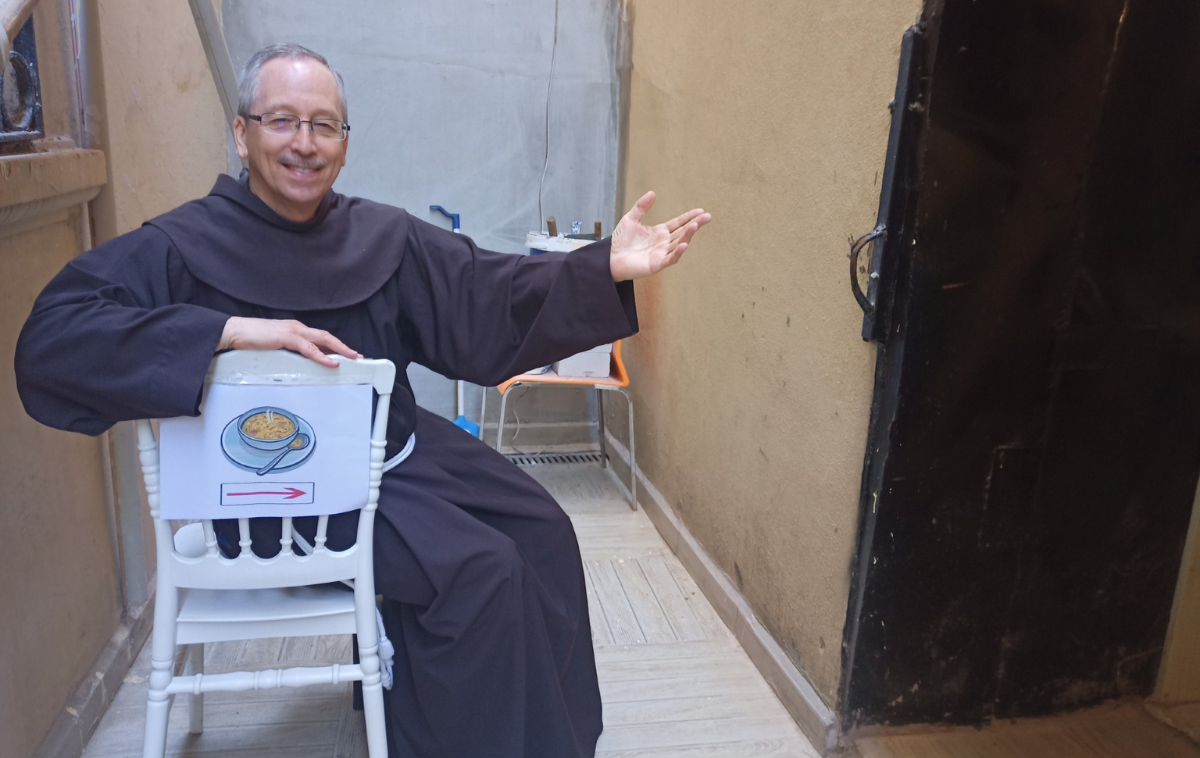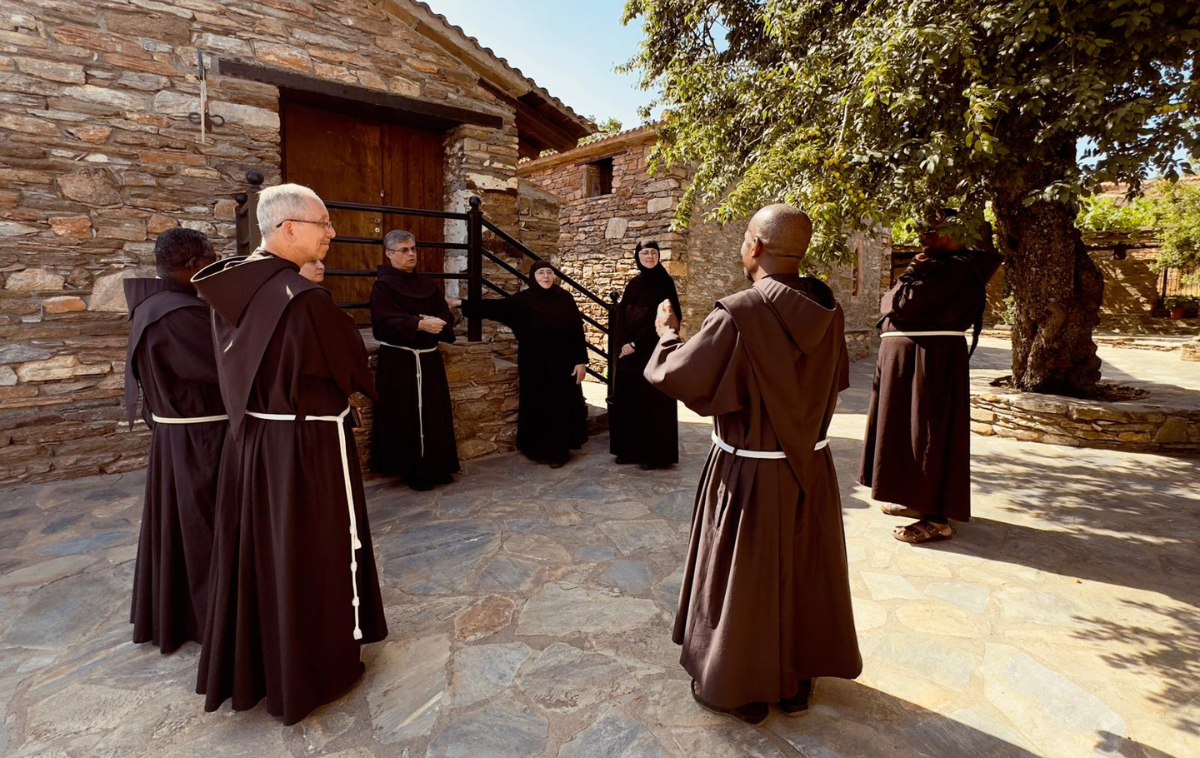Franciscan linguist bridges cultures, one word at a time
Date Published: August 05, 2024
By Eli Pacheco
Br. Jeff Haller, OFM, has studied 20 languages – some for just a few months, others for many years. He has taught English in China, Myanmar, Thailand and Vietnam; he has also served in the Democratic Republic of Congo and is now in Türkiye.
His gift helps him build understanding and community among people from different cultures.
“There’s adventure in a new language,” said Br. Jeff, whose international fraternity in Istanbul, Türkiye, ministers to formerly incarcerated, undocumented and homeless people, as well as migrants and refugees.

Part of Br. Jeff Haller’s ministry is with a local soup kitchen. The gathering brings together people from all over. “One could hear Tagalog, Cebuano, Turkish, Farsi, French, Korean, Spanish, Italian and English all in one room!” Br. Jeff said.
Providing dignity through multilingual outreach
Br. Jeff and the other friars are serving amidst an epic refugee crisis at the crossroads of Asia and Europe. The United Nations Refugee Agency estimates that Türkiye hosts the largest number of refugees worldwide, nearly four million people.
Friars help feed, clothe and shelter refugees and the poor by supporting local Caritas Internationalis projects – including a soup kitchen and used-clothing center – and by fostering interreligious and ecumenical dialogue.
Br. Jeff tries to welcome migrants and speak to them in their own language as a form of respect.
“To know that someone understands us – or makes the attempt to do so,” Br. Jeff said. “This is linked to an even deeper desire to have our identity recognized in this world; I doubt that anyone wants to be invisible and brushed aside.
“When it comes to painful stories and reflections on the challenge to overcome dehumanizing obstacles, it can perhaps, or likely, be said that migrants have a more urgent desire to share their stories.”
Look no further than those in their soup kitchen.
“One could hear Tagalog, Cebuano, Turkish, Farsi, French, Korean, Spanish, Italian and English all in one room!” Br. Jeff said.

Friars at St. John the Baptist Monastery near Volos and Larisa, Greece.
The world as a classroom
As a teacher, Br. Jeff has enjoyed interacting with students from different cultures.
He taught undergraduate and postgraduate students and seminarians at major and minor seminaries. Br. Jeff also instructed adults and high schoolers part-time at private linguistic institutes and helped to create an adult literacy program for a parish in Kinshasa, Congo.
He sometimes worked with candidates to prepare for their immigration interviews.
In China, he worked in universities in a commercial section of the city. General Electric and Marriott hired him to teach English to their workers.
Teaching outside the United States, he sought to connect people from different cultures and help them to understand each other – and to find whimsy in the wonder of words.
For example, in western Congo, in the predominant language of Lingala, the term for door – munoko ya ndako – means “mouth of the house.” An owl in Chinese is an eagle with a cat’s head, or mao tou ying. A giraffe? Chang jing lu, meaning, “deer with a long neck.”
He calls language a “treasure chamber full of traditions, cultural insights, perspectives, and much more to identify not only the person but of peoples.”
“As one develops the skills in a language, he or she also develops an essential element for entering the lives of others through dialogue and shared perceptions,” Br. Jeff said.
“For seminarians and students, it’s crucial to have such skills for interaction and ministry; way beyond being an academic discipline, it’s a critical tool for cultivating understanding and respect, which are tragically lacking in so many situations and places today.”
Crow’s feet and fish tails
At age 68, Br. Jeff speculates his teaching days – at least in formal settings – are over. (He might say, with age, he is getting crow’s feet, those little wrinkles that appear with age around the eyes. In China, they call them yú wěi or “fish tails.”)
His experience among the poor and refugees in Türkiye has shown him the significance of languages for seminarians, particularly those serving as missionaries, to prepare homilies for liturgies, reflections for retreats, the Sacrament of Reconciliation and other forms of ministry.
“The capacity to express oneself in another tongue is often essential,” Br. Jeff said. “Catholics in Istanbul come from many cultures, so each additional language can open doors to expanded ministry.”
.png?sfvrsn=f44f310c_1)
Br. Jeff Haller and other Franciscan friars in evening prayer with Sufi dervishes.

.png?sfvrsn=a2de1a5e_1)